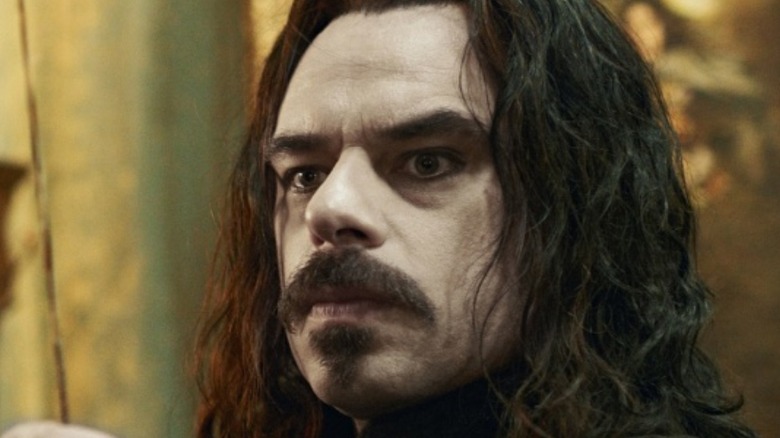
Over the last decade or so, the most popular Hollywood comedy hasn't been found in comedies at all, but rather in the galumphing genre hybrids of blockbuster movies. The Marvel formula -- action leavened with cute quips ("We're friends from work!") and the occasional piece of slapstick -- has been wildly successful. These days, people go to those movies to giggle as they do to watch things blow-up.
Nonetheless, there are still films in which laughs are the focus, not the hero's journey. Though rom-com, farce, black comedy, and absurdist silliness haven't been the big things of the last 10 years, there have still been many great comedies. You just have to look a little harder to find them than you did in the days when Cary Grant stumbled through screwball rom-coms and leading men didn't wear spandex.
If you're willing to check out some indie releases, movies that didn't get enormous box office pushes, and films that debuted on streaming services, not in theaters, you'll end up with the best comedies of the past decade: homicidal brides, horny nuns, and hapless would-be dictators -- and, yeah, maybe some funny superheroes, too.
Ready Or Not (2019)
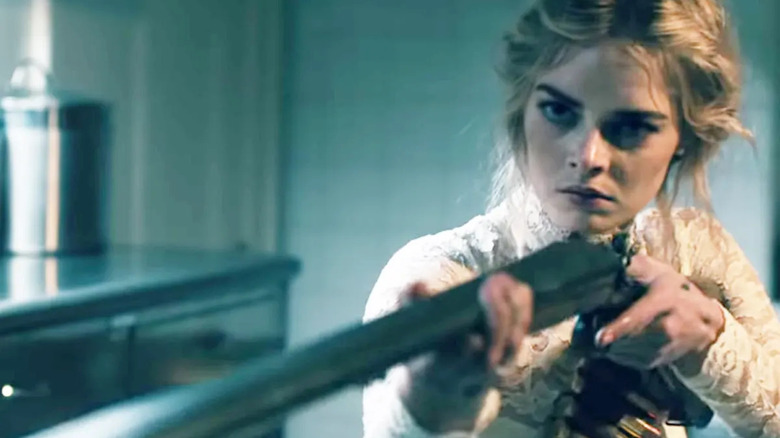
The other recent film about the homicidal secrets of the disgustingly wealthy, "Knives Out," could certainly have been on this list, but I pledge my troth to "Ready or Not" and its bloodier, more pointed satire. Grace (Samara Weaving) marries into the wealthy Le Domas family, only to discover that the clan sacrifices select in-laws on their wedding nights after a ritual game of hide and seek. The Le Domas clan thinks its ongoing good fortune depends on extracting blood from the plebes, which is both insane and a striking on-the-nose metaphor.
Unfortunately for Grace, the rich are selfish monsters who murder on a whim. Somewhat more fortunately, they're also incompetent doofuses who don't know how to use their antique crossbows and are so coked up they keep shooting the servants. "Ready or Not" is cheerfully ruthless in its moral calculus (don't get too attached to those cute wealthy kids), and its mayhem and its body count rise together until the last exhilarating explosion of visceral, comeuppance. I don't know if "Ready or Not" will be a cult classic in another 10 years, but it should be.
What We Do In The Shadows (2014)
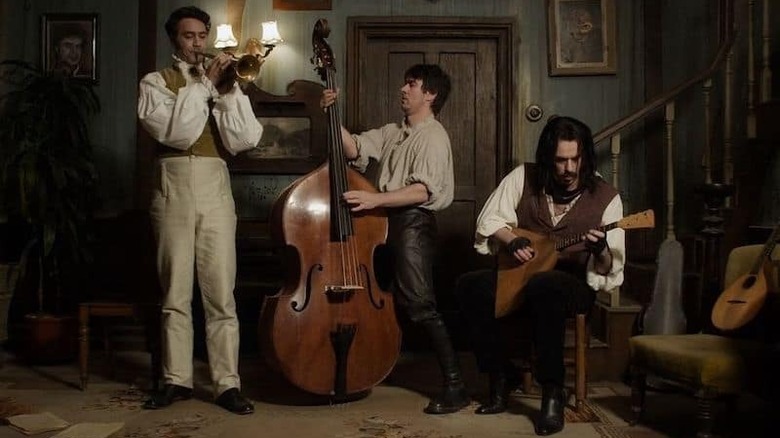
"What We Do In the Shadows" has been called a satire of vampire movies, a satire of millennial slackers, a satire of reality TV, and even a satire of mockumentaries. But the joy of Taika Waititi and Jemaine Clement's vampire mockumentary is that, ripped out throats and puddles of blood aside, it doesn't really have the heart to go for the jugular. From the moment that Viago (Waititi) blearily fumbles for his alarm clock, rises from his coffin, and smiles shyly into the camera, every frame of werewolf-disembowelment or ancient vampire incineration is suffused, like the vampire's pet human Stu (Stuart Rutherford), with an affable sweetness.
Some of the love is directed at the character's themselves; Viago finally turning his 90-year-old lover into a vampire so they can live together for eternity is, in its goofy, low-key way, as romantic as "Twilight." But mostly the joy in the movie is in the movie-making itself. The fictional documentary crew captures battling bats, vampires squabbling over dirty dishes, and a crew of creative people who are obviously thrilled to be stringing together gory effects and one-liners. Few comedies feel happier, torn arteries and all.
Ant-Man And The Wasp (2018)
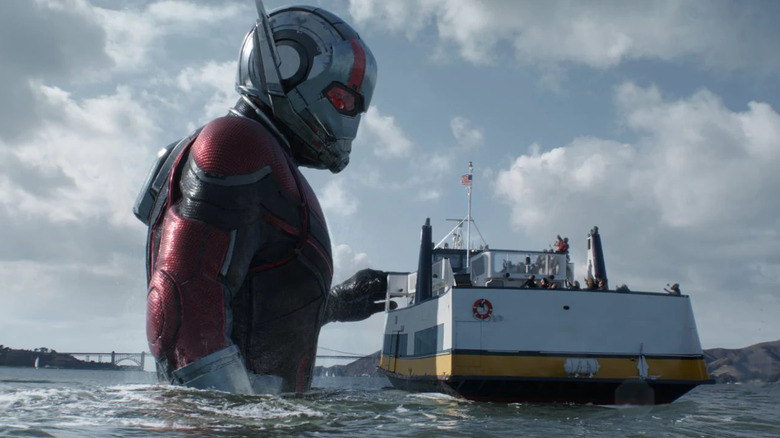
"Deadpool" was the bloated comedy-action juggernaut of the last decade, with a raunchy, R-rated sense of humor that translated to box office gold. By contrast, "Ant-Man and the Wasp" is the smallest of all possible superhero blockbusters. Scott Lang (Paul Rudd) isn't saving the world, but saving a family member. The whole conflict feels comfortable, like a sitcom -- not least when Ant-Man gets his shrinker stuck and ends up the size of an 8th grader (Hank Pym offers him a juice box and string cheese). Huge battles build to puny anticlimaxes -- Wasp (Evangeline Lilly) shrinks and grows and Ghost (Hannah John-Kamen) turns insubstantial, so neither can hit the other. Buildings fit in suitcases. Hello Kitty PEZ dispensers become giant, dangerous obstacles.
Ant-Man does grow to titanic size at one point, but the strain makes him sleepy, and he conks out like an overtired toddler. "Ant-Man and the Wasp" knows that gigantic action set pieces and bellowing fart jokes can be a snore. Sometimes, the best comedy is deflation, and sometimes, it's acknowledging that the small stuff -- jobs, friends, sadness, love, and so on -- can loom large enough to form the spine of a super-adventure, too.
The Little Hours (2017)
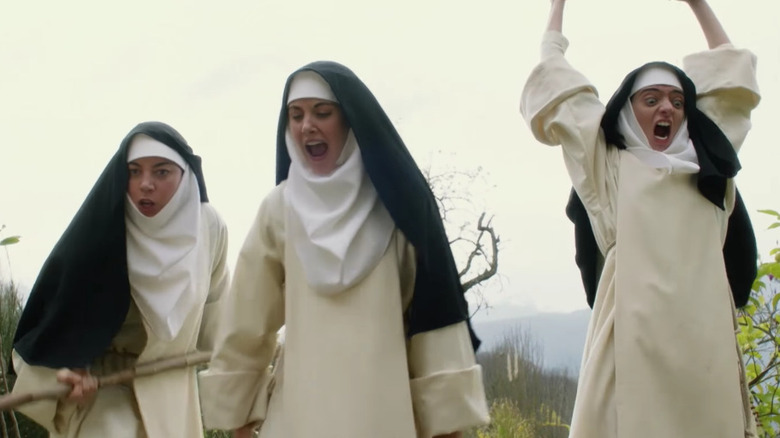
Bocaccio's "Decameron" includes a story about a man who pretends to be a deaf-mute so that he can become a convent gardener and seduce horny nuns. Director Jeff Baena borrows the setting, the gardener (Dave Franco), and the horniness, but adds Aubrey Plaza as Sister Fernanda, who's simmering with violent rage. Nick Offerman is there too, playing a tedious psychopathic nobleman. And Kate Micucci plays mousy, tattletale Sister Ginevra, who gets high on belladonna and suddenly confesses her lesbianism -- and her Judaism -- before stripping naked and charging into a coven of witches. And, oh yes, there's a turtle with a candle on it.
In short, "The Little Hours" is absolutely the best medieval nun sex farce to feature drunk monks listening half-aghast (and half-fascinated) to pornographic confessions about sodomy. The contemporary language is part of the joke, but the anachronism is also a joyful reminder that concupiscence, irreverence, gossip, and getting high aren't new inventions, but trusted ways of making the days go by no matter what era you live in.
The World's End (2013)
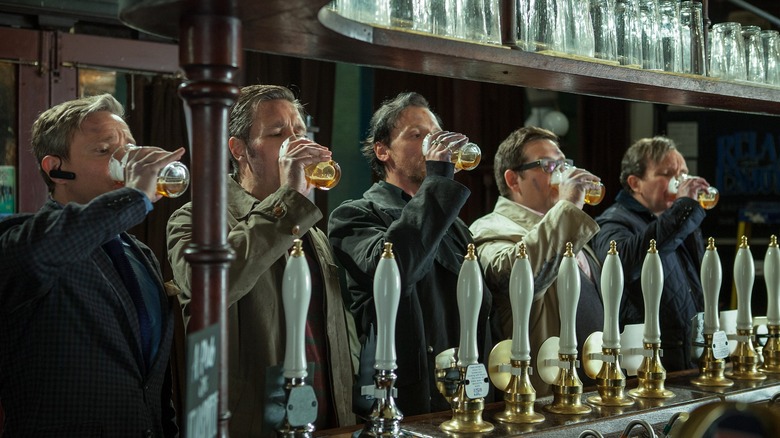
Edgar Wright's last film with chums Simon Pegg and Nick Frost is a meditation on nostalgia, growing up, and decapitating clones in a bathroom. Pegg plays Gary King, an aging man-child determined to round up the old gang for one more pub crawl, even though all the watering holes of yore have been bought out by boring corporations (who turn out to be alien invaders). It's hard not to see this as a nod to Wright's own move to Hollywood. For "The World's End," the final chapter in his and Pegg's Cornetto Trilogy, he's getting together with his mates one last time to party like they did in their younger days -- with lots of improbable jump cuts, extreme close ups, and character-based comedy.
King is so stuck in the past that he's had the same cassette in his car stereo for 20 years, and has to lie about his mom dying to get his old friends to hang out with him. He's a preposterous and unappealing figure. But Gary's arrested development gives him the dumb self-confidence to say no to the aliens and their plans for cleaned-up franchise eateries. In "The World's End," it's all over if you don't grow up, and it's all over if you do. So, you might as well down that extra brew and open your arms to the apocalypse.
The Half Of It (2020)
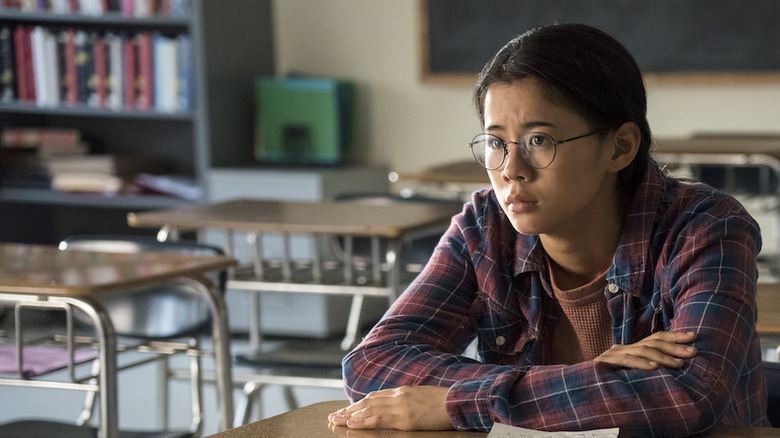
It took Alice Wu 15 years after 2005's "Saving Face" to direct another film, but "The Half of It" confirms that, yes, she is in fact one of the treasures of 21st century cinema. "The Half of It," Wu's queer twist on Cyrano, references a lot of bleak texts about unrequited everything, including Sartre's "No Exit" and Ishiguro's "Remains of the Day." And, yes, "The Half of It" is a rom-com with no couple at the end (although there is a kiss). But the point here isn't that nobody finds that happily ever after, but that everyone does.
Leah Lewis is brilliant as the deceptively acerbic outsider Ellie, who sees more than you'd expect through her perfectly round glasses. But what makes the movie magic is that second-string jock Paul (Daniel Diemer) and school beauty Aster (Alexxis) --a girl trapped by a strict dad, a supposedly perfect boyfriend, and her own uncertainty -- have just as much depth, just as much pathos, and just as much tragic longing as the supposed star. Everyone's heart gets broken, but they're in high school. Their heartbreak isn't forever.
Cabin In The Woods (2011)
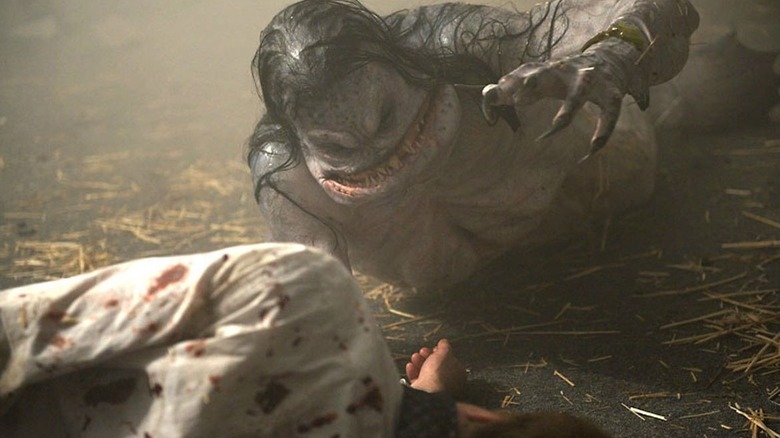
Drew Goddard's feature film debut is "The Truman Show" meets "The Evil Dead," with Lovecraft and possibly Marx waiting in the wings. "Cabin in the Woods" starts with a typical slasher set-up -- a bunch of kids head off to spend a weekend at a no-doubt cursed cabin in the middle of nowhere. But then it turns out that those kids are being manipulated by a bunch of bored bureaucrats who are setting them up to die in order to placate the Ancient Ones, who will rise and destroy the Earth if they don't get a blood sacrifice.
The bureaucrats casually snacking and taking bets on who will be killed by horrific creatures are, of course, also the movie's audience; part of the humor of "Cabin in the Woods" comes from how you're nervously rooting for the movie to torture those kids, just like all the people in lab coats are. The other part, though, comes from the way that you swing back around, wondering if maybe a world built on torture deserves to be torn apart. When that giant hand tears out of the ground at the end and reaches for you, you're not sure whether to run, giggle, or cheer.
The Death Of Stalin (2018)
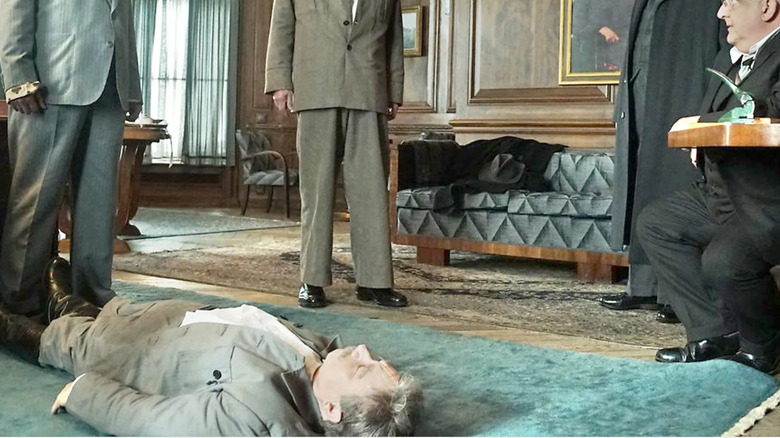
Director Armando Iannucci has spent his career anatomizing the bumbling viciousness of those in power. However, as wonderful as his Iraq War send-up "In The Loop" is, "The Death of Stalin" may contain his perfect subject. Set just after the death of Joseph Stalin, the film follows the thuggish and panicked political maneuverings of Soviet government officials, including Stalin's interim successor Malenkov (Jeffrey Tambor), his head of security Beria (Simon Russell), and Nikita Khrushchev. The latter is played by Steve Buscemi, who turns in one of his all-time greatest performances, making Khrushchev a profane and stumbling presence with an ill-fitting suit and a core of self-preservation that's indistinguishable from methodical cruelty.
There's a fair amount of gunplay in the film, orchestrated with slapstick precision, but Iannucci's main weapons are an unending onslaught of words. His power-hungry subjects curse, sneer, threaten, and lie, unleashing great geysers of falsehoods not just to each other, but also to themselves. They're so eager to show their loyalty that they jockey to kneel in Stalin's urine, and they're so fearful they can't even agree to get him a doctor. The only people more pitiful than the politicians are their everyday victims, who rush to honor the man who murdered them in droves. It's a movie you laugh at so you won't gag.
Sorry To Bother You (2018)
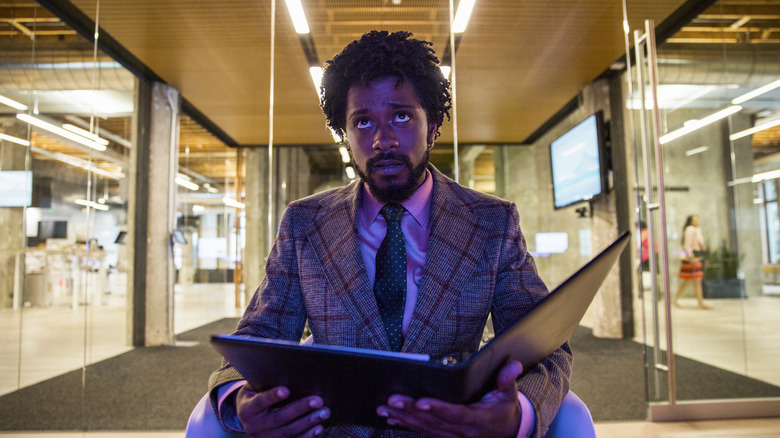
Boots Riley's "Sorry to Bother You" starts as an absurdist satire of Hollywood's rag-to-riches narrative, but ends as an exhilarating call for solidarity. Cash Green (LaKeith Stanfield) is a slouching nobody who lives in his uncle's garage with his girlfriend Detroit (Tessa Thompson), but he hopes for better things -- and when he discovers an almost mystical gift for telemarketing, all those dreams look like they're about to come true. Using his "white voice" (courtesy of David Cross), Green starts selling gobs of garbage (also, weapons and slave labor) to rich jerks. Soon, women throw themselves at him, his bosses heap him with praise, and he's called up to the executive floor.
Riley has a gift for the smiling dramatization of ethical atrocity, and Stanfield's hangdog shuffle through the halls of power both recalls servile Black stereotypes of the past and skewers them. The sequence with racist CEO Steve Lift (Armie Hammer), who insists that Green rap for him, is one of the most uncomfortable scenes ever put on film. That corporate smarm makes the multiracial (and, indeed, multi-species) worker revolt at the end all the more satisfying. "Sorry to Bother You" is one of the few Hollywood films in which the good guys actually win -- not least because, for once, the good guys don't get rich.
Destination Wedding (2018)
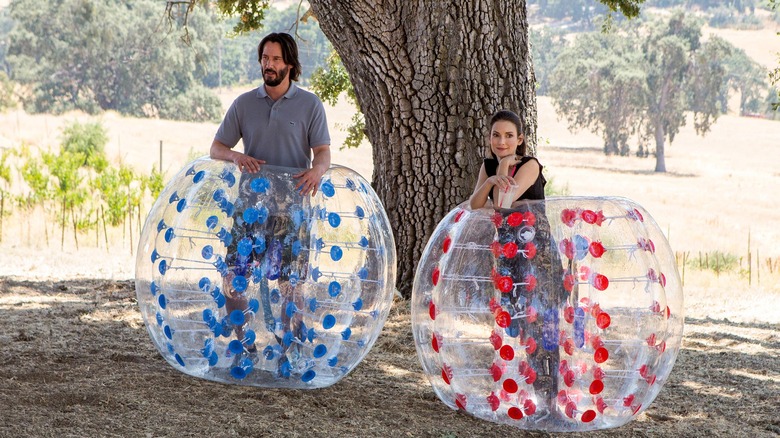
The day of the hyper-verbal, urbanely cynical screwball comedy has passed. If you doubt that, you have only to look at the bafflement and resentment that greeted Victor Levin's "Destination Wedding." And sure, if you want big public declarations of love and conventionally romantic protagonists, this is not for you. But if you want to see Keanu Reeves and Winona Ryder trade barbs, wallow in misery, and have some of the most awkward sex ever -- and why on earth wouldn't you want to see that? -- you should give "Destination Wedding" a shot.
Frank and Lindsay, disillusioned and bitter, find themselves seated next to each other at a grotesquely crass destination wedding in Paso Robles; the groom is Frank's detested brother and Lindsay's detested ex. And, for the whole film, those two reluctant guests are the entire show. Occasionally a waltzing couple comes into frame, or someone will roll past in a giant ball, but that just emphasizes that the only dialogue is Reeves and Ryder's vitriolic, profane back-and-forth. Rarely has an onscreen couple been so perfectly imperfect together. The last scene, in which they both seem embarrassed to have found even provisional happiness, is a treasure -- but then, so is the whole movie.
Bridesmaids (2011)
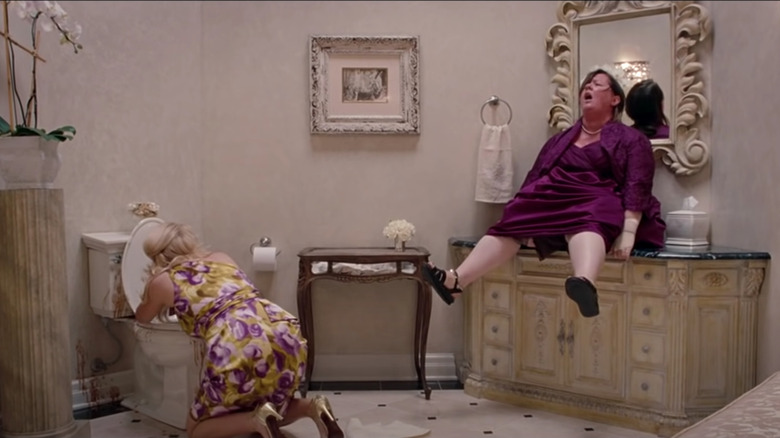
Most reviewers praised Paul Feig's "Bridesmaids" as a clever combination of chick flick and raunchy comedy, but you can also see it as an almost unendurably bleak trip into the abyss of isolation and self-loathing. Annie Walker (Kristen Wiig) loses her beloved bakery and her boyfriend, and that's before the film even starts.
The main plot is about Annie's disintegrating relationship with her best friend Lillian (Maya Rudolph), as the latter's wedding plans are taken over by her perfect and wealthy new best friend, Helen (Rose Byrne). Along the way, the broke Annie, who can't even pay for her bridesmaid's dress, is kicked out of her crappy apartment and fired from her menial job. She also excruciatingly, miserably, apocalyptically ruins every single one of Lillian's engagement events, the worst of which involves a small Brazilian eatery and a titanic case of food poisoning that makes Lillian's bowels, like Annie, utterly betray her.
The movie is not perfect. The obligatory side plot with some irritating cop (Chris O'Dowd) should have been excised, and commercial considerations make it impossible for "Bridesmaids" to follow its bleak vision of economic and existential despair to its logical, bitter conclusion. But Wiig is a wonder of neurotic misery, her body language at once rigid and brittle. At its ruthless best, there is no blacker comedy than "Bridesmaids."
Read this next: Our Favorite Comedies...That Also Make Us Cry
The post The 11 Best Comedies of the Last 10 Years appeared first on /Film.
0 Comments